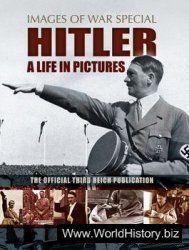Among the last of the Western Church Fathers, the most important were Boethius (d. 524), Gregory the Great (d. 604), and Isidore of Seville (d. 636). Boethius set for himself the task of translating the great philosophers Aristotle and Plato. He translated most of the logical works that make up Aristotle’s Organon, though not all of these translations survived. He wrote commentaries on some of them: one on the Categories and two on the
Perihermeneias. One of the Perihermeneias commentaries also provides much information about all the ancient Greek commentaries on that work. While a careful scholar,
Boethius was also a deep, talented, creative artist and theologian. His Consolation of Philosophy is a masterpiece of philosophy and poetry, and his five theological tractates are dense works of technical linguistic precision aimed at those alone who could wrestle with the complications involved in attempting to attain some understanding of the mysteries of the Trinity and the Incarnation. Gregory the Great was a major force in reestablishing Rome and the Church after the barbarian invasions. His writings were extensive and influential. His Moralia on Job explained that text according to the numerous models of exegesis that descended from the schools of Alexandria and Antioch: providing literal, allegorical, ana-gogical, and tropological interpretations that became universal patterns for reading all the works of Scripture. The tropological or moral interpretation of the Biblical texts revealed their rich teachings concerning the way Christians should live in the present life. His Moralia thus became for centuries a guidebook for Christian moral and ascetical practices. His Liber regulae pastoralis (Book of Pastoral Care), written when he became pope, provided specific directions for the spiritual life of pastors and prudent advice for developing the faith and moral character of their flocks. He also played a major role in revising the celebration of the liturgies and bringing reform to Church music. Isidore of Seville is considered by many to be ‘‘the last of the Fathers of the West.’’ He is recognized mainly as a compiler, but a compiler who preserves many of the riches of the Fathers and famous pagan authors. His most often cited work is his Etymologies, which, like many of his other treatises, provides interesting, but at times uncritical derivations and information. His books on grammar, rhetoric, dialectic, and the four mathematical sciences show his support for the educational basics of the seven liberal arts that many Church Fathers viewed as important for the development of Christian learning.
Before turning to John of Damascus, generally considered the last of the Eastern Fathers, special mention has to be made of Dionysius the Areopagite. This author was at first judged to be the first-century Dionysius converted by the preaching of St. Paul (Acts 17, 34). His chief works were: De divinis nominibus (On the Divine Names), De mystica theologia (On Mystical Theology), De caelesti hierarchia (On the Celestial Hierarchy), and De ecclesiastica hierarchia (On the Ecclesiastical Hierarchy). In the thirteenth century students of his works found that they showed signs of strong influence from the neo-Platonic philosopher Proclus, and thus had to be produced toward the end of the fifth century. In earlier times, some passages in his works were challenged, but when Maximus the Confessor (d. 662), aided by the sixth-century commentaries of John of Scythopolis, defended his orthodoxy in a work called the Ambigua (On Ambiguous Points), Dionysius’ reputation was restored. The intellectual power of his books was so strong that they were recognized in the Latin West as worthy of translation. Hilduin, the abbot of St-Denis, first translated them in 827, but it was the translations of John Scotus Eriugena, about twenty-five years later, that were employed by mystical and theological writers throughout the Middle Ages. John of Damascus or John Damascene (d. 749), the last of the Eastern Fathers, is most respected for his Fountain of Wisdom. This three-part work begins with a treatise that serves as an introduction to the study of theology, the Dialectica (On Dialectic). The second part provides a history of heresies. The most famous section of the work was the third part, De fide orthodoxa (On Orthodox Faith), a compendium of the Christian doctrines of God, creation, providence, Christology, the sacraments (Baptism and Eucharist), veneration of the saints and their images, the books of Scripture, evil, and the last things. He also wrote many treatises on Christian morality and asceticism, exegetical works on Paul’s epistles, and produced a small collection of sermons and liturgical hymns. All of his works show a strong familiarity with the councils and the Patristic writings of the East. He underscored the strong respect for tradition that is exemplified by the Church Fathers and carried by their writings.




 World History
World History



![Road to Huertgen Forest In Hell [Illustrated Edition]](https://www.worldhistory.biz/uploads/posts/2015-05/1432477693_1428700369_00344902_medium.jpeg)





